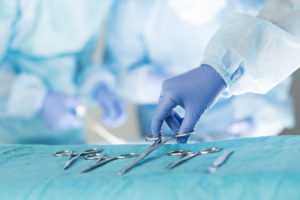
I read an article in my Aesthetic Society News 2019 about the “Dangers of Obstructive Sleep Apnea.” It caught my eye, because I had a large patient who had sleep apnea, and we had postponed her surgery for almost a year as she got treatment for that. But how do you evaluate the risk?
In the article, they said about 10% of people have some degree of undiagnosed sleep apnea, and 10-20% have disordered breathing. He states other studies using screening questionnaires found 20-40% of elective surgical patients were at high risk for obstructive sleep apnea. Patients didn’t mention the signs of sleep apnea when filling out medical questionnaires and preop assessments.
WHAT IS SLEEP APNEA?
Sleep apnea is when you stop breathing while you sleep. The airway will completely or partially close during sleep. You wake up because you need to breathe, and when you do so, the airway opens up again. When you fall back asleep, the airway may close again, so you repeat this cycle: sleep, airway obstructs, you wake up, airway opens, you fall asleep, airway obstructs.
Because you are having these short bursts of sleep, you do not feel rested when you wake up. You have lower oxygen levels in your blood. This may lead to a cycle of weight gain- people who are not getting restful sleep often eat during the day to try to stay up. There are also release of hormones during sleep which help regulate hunger. No sleep = bad hunger hormone regulation = weight gain. See a scientific article on that HERE.
HOW DO YOU KNOW IF YOU HAVE IT?
Often those with sleep apnea are overweight, have a thicker neck, feel tired all the time, and SNORE (louder than a normal conversation/can hear through doors).
WHAT IS THE TREATMENT?
To “fix” the problem it depends on why you have it.
- Sometimes it is anatomic: small jaw, large tonsils, and other anatomic issues which make the airway portal smaller.
- Weight contributes. Sleep apnea rates are higher in those over a BMI of 35.
- High blood pressure correlates.
- Age over 50
- Men
- Neck circumference over 40cm
CPAP is continuous positive airway pressure. It looks like a mask you wear when you sleep. What it does is give pressure to the airway to keep it from closing off. By avoiding the airway closing, you don’t keep waking up every 5 minutes and you have better oxygen to your body.
WHY DO WE CARE DURING DURING/AFTER SURGERY?
First and foremost, you need oxygen to heal. If you don’t get oxygen, you can be at risk for heart attacks, brain damage, and even death.
Second, many medications used during surgery and afterwards for pain control are respiratory depressants and sedatives. We don’t want to give medications which sedate you and decrease your drive to breathe when you already have issues with that. Some medications used reduce the pharyngeal muscle tone, which can cause airway collapse.
There are issues that the pulse oximeter, which reads blood saturation, may still read as normal, but the patient is retaining carbon dioxide. When carbon dioxide levels rise it can shut off the respiratory center drive. (For this reason in our patients in the OR we use an end tidal carbon dioxide measurement, so we would know if this is happening.)
SO WHAT SHOULD WE DO?
- GENERAL AWARENESS. Do you have sleep apnea? Take the BANG questionnaire on the next blog.
- GETTING EVALUATED. If you have concerns about your sleep, have a work up prior to surgery. You can do a sleep study where they can document how often you have obstructive episodes, how low your oxygen saturation gets, etc. Just like most things, there is a spectrum of how much people are affected.
- CAREFUL USE OF POST OP PAIN MEDICATION & SEDATIVES. Unfortunately in plastic surgery, many of the non narcotic pain medications (like Advil, Toradol and others) cannot be used as they increase the risk of bleeding.
- CAREFUL MONITORING OF PATIENT (Using the pulse ox and end tidal carbon dioxide monitoring).
- USE OF CPAP before and after surgery.
